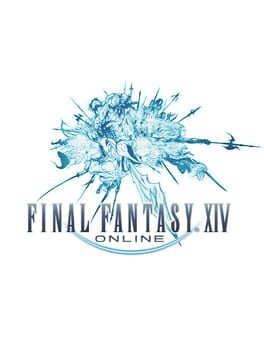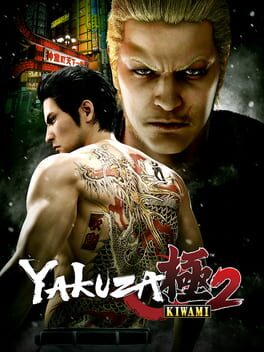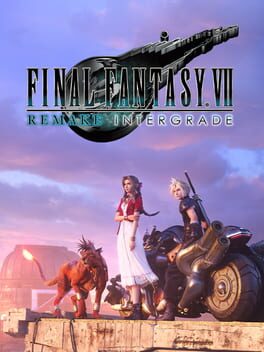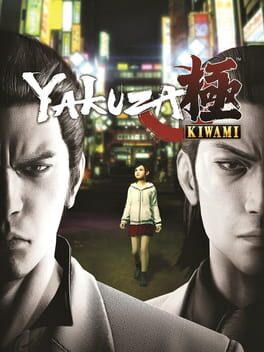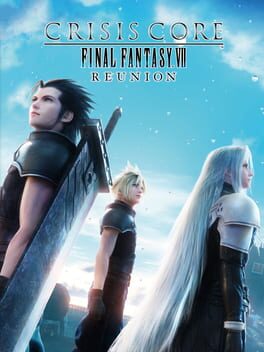aminec96
This review contains spoilers
I've been reflecting on the experience of playing "A Realm Reborn," and I have to say, the game does a remarkable job of gradually immersing players in its intricate conflict and introducing important characters. The exploration of various city-states and beast tribes, as well as encounters with their respective primals, really helps to bring the rich lore to life. However, as much as I appreciate the game, I do have a few substantial criticisms that I believe are important to address.
Firstly, I feel that there should have been a greater emphasis on character development. Characters like Lahabrea seemed to lack the depth and focus needed for players to fully invest in their roles and significance within the story.
Secondly, I found it disappointing that some pivotal moments and dialogues were left without voice acting. This absence detracted from the immersive experience and left me wanting more from these key interactions.
Thirdly, I believe that "A Realm Reborn" could have been more efficient with its pacing, especially given the game's length. Some sections felt needlessly prolonged, impacting the overall enjoyment of the story. However, the pace notably picks up after the battle with Rhitatyn, and the experience becomes increasingly engaging from that point on.
2.1
Shifting to the "A Realm Awoken" patch, I was glad to see improvements that addressed some of my concerns. The quests became more story-focused and displayed greater efficiency. Furthermore, the introduction of Elidibus as a character was striking and left me eagerly anticipating further exploration of his role in the game.
2.1
Firstly, I feel that there should have been a greater emphasis on character development. Characters like Lahabrea seemed to lack the depth and focus needed for players to fully invest in their roles and significance within the story.
Secondly, I found it disappointing that some pivotal moments and dialogues were left without voice acting. This absence detracted from the immersive experience and left me wanting more from these key interactions.
Thirdly, I believe that "A Realm Reborn" could have been more efficient with its pacing, especially given the game's length. Some sections felt needlessly prolonged, impacting the overall enjoyment of the story. However, the pace notably picks up after the battle with Rhitatyn, and the experience becomes increasingly engaging from that point on.
2.1
Shifting to the "A Realm Awoken" patch, I was glad to see improvements that addressed some of my concerns. The quests became more story-focused and displayed greater efficiency. Furthermore, the introduction of Elidibus as a character was striking and left me eagerly anticipating further exploration of his role in the game.
2.1
1994
Final Fantasy 6 is a game that boasts a large and diverse cast of characters, which can sometimes be overwhelming in other games. However, in this game, every character is introduced so seamlessly that it didn't even register to me until each one was already present. The game mechanics are also woven in such a way that they allow you to get the most out of nearly every playable character.
Narratively, Final Fantasy 6 is a character-focused game, and it does a fantastic job of fleshing out each character's backstory. It's hard not to fall in love with so many of the characters, including Terra, Celes, Locke, Cyan, Sabin, Edgar, and Shadow. Each character has a unique personality, and it's refreshing to see such a diverse group of people working together towards a common goal.
The subtext in this game is rich, and it relies on that to fully understand Kefka, the game's primary villain. It's a welcome change from other games where the villain is often a one-dimensional character with no depth. It's easy to see why he is the favorite Final Fantasy villain of so many. Overall, Final Fantasy 6 is a well-crafted game that has stood the test of time and is still considered one of the best in the series.
Narratively, Final Fantasy 6 is a character-focused game, and it does a fantastic job of fleshing out each character's backstory. It's hard not to fall in love with so many of the characters, including Terra, Celes, Locke, Cyan, Sabin, Edgar, and Shadow. Each character has a unique personality, and it's refreshing to see such a diverse group of people working together towards a common goal.
The subtext in this game is rich, and it relies on that to fully understand Kefka, the game's primary villain. It's a welcome change from other games where the villain is often a one-dimensional character with no depth. It's easy to see why he is the favorite Final Fantasy villain of so many. Overall, Final Fantasy 6 is a well-crafted game that has stood the test of time and is still considered one of the best in the series.
2017
The addition of Goda Ryuji and Sayama Kaoru to the game was truly awesome and I thoroughly enjoyed their character development. Haruka's storyline was intriguing, and the scenes with Terada were hilariously bad, which added to the overall charm of the game. Ryuji's portrayal as a classic shonen meathead was spot-on, and I personally loved it. His character added a lot to the game's ending, making it even more satisfying. Additionally, Kazama's character was also enhanced by the game's storyline, making him all the more interesting. While I liked the direction that the game took, I think it could have benefitted from having a stronger focus. Overall, it was a great game with some amazing additions to the storyline.
This review contains spoilers
Final Fantasy VII Intermission which I recently played exceeded my expectations in every way. It focused on Yuffie, a character I've always been curious about, and explored the lore of Wutai, which I found fascinating. Intermission was able to capture Yuffie's personality perfectly, making her stand out even more when compared to the stoic Cloud. The game also expanded on the Avalanche crew, which was a pleasant surprise, and I felt a sense of both excitement and sadness when I saw the familiar faces of the Avalanche members.
The addition of Sonon was a smart move, as he complemented Yuffie's character and added depth to the story. The character of Scarlet was also fleshed out, which was something that was sorely needed. I was also introduced to two new characters, Nero and Weiss, from a game spin-off that I have not played. Both characters were intriguing, with Nero being the perfect example of a minor antagonist who is truly terrifying.
The DlC culminated in a beautiful crescendo, with the plate dropping and Yuffie's story arc coming to a satisfying conclusion. I was left wanting more and was excited to find out where Yuffie's story would go from there. Overall, the Final Fantasy VII Intermission was a fantastic addition to the game and left me wanting more of the world of Final Fantasy VII Remake.
The addition of Sonon was a smart move, as he complemented Yuffie's character and added depth to the story. The character of Scarlet was also fleshed out, which was something that was sorely needed. I was also introduced to two new characters, Nero and Weiss, from a game spin-off that I have not played. Both characters were intriguing, with Nero being the perfect example of a minor antagonist who is truly terrifying.
The DlC culminated in a beautiful crescendo, with the plate dropping and Yuffie's story arc coming to a satisfying conclusion. I was left wanting more and was excited to find out where Yuffie's story would go from there. Overall, the Final Fantasy VII Intermission was a fantastic addition to the game and left me wanting more of the world of Final Fantasy VII Remake.
2016
As an avid fan who was introduced to the Yakuza series through Yakuza 0, I had high expectations from the latest game. Although it had the challenging task of merging both continuities and retelling the original story, I believe the game excelled in providing more context to Nishiki's character and backstory. While there were certain parts of the game that left me wanting more, such as the ending and the limited scenes between Nishiki and Kiryu, I appreciate the developers' efforts and look forward to seeing how they continue to expand the Yakuza series in the future. With the inclusion of Haruka and the promise of an expanded cast, I am confident that the future of the series is bright.
This review contains spoilers
The game I played had four expectations that I was eagerly anticipating. Firstly, I wanted to experience a sense of adventure with the party and explore each new location outside of midgar. Secondly, I wanted to relive some of my favourite moments from the original game. Thirdly, I wanted to witness an expansion of the characters and their individual story arcs. Lastly, I wanted to examine the changes made in the last game.
The game surpassed my expectations with an incredible adaptation of Nibelheim that left me in awe. Subsequently, the game opened up to an overwhelming, yet exhilarating open-world environment. The various locations the game offered were stunning and fulfilled my desire to see the characters interact with each other. I was particularly curious about how Yuffie would fit into the group dynamics, and I was pleasantly surprised with her sweet and charming relationship with Barret and Aerith. Likewise, Nanaki's introduction as the newest member of the crew and his interactions with the entire crew leading to the reveal of his real voice was both hilarious and endearing. Kappei Yamaguchi's voice fit his character perfectly, and Johnny's antics in Costa del Sol were hilarious.
The game did an excellent job in recreating some of my favourite moments from the original game, such as the Seto reveal, which brought me to tears. However, I wish that the scene had more time to breathe. The Aerith scene at the end was also puzzling as it went straight into a boss battle without giving the audience ample time to process the emotional weight of the moment. Other than these two scenes, the game elevated every scene it adapted and transformed it into something far greater.
I had a fear that with such a large party, some characters could feel neglected, underdeveloped, or underexplored. However, the game proved me wrong as each main member of the party received more than enough screen time to shine.
The twist involving Zack at the end of the last game left me with an insatiable curiosity about his role in these games. This change was a significant departure from the original continuity, and I was not disappointed. Instead, I eagerly waited for more scenes featuring Zack throughout the game. The game slowly expanded on his role, which was incredible. Bringing back Zack was a risky move that could have potentially undermined his amazing ending in Crisis Core. However, the game managed to build upon those ideas and elevate Zack for me, increasing the sense of tension and excitement.
The game did far more than just meet my expectations. It redefined how storytelling in video games can be approached, at least for me. The game's visuals were stunning, managing to surpass its predecessor. The spectacle was jaw-dropping and even hilarious at times. The new mini-games were mind-blowing, especially as someone who is usually not into them.
The game expanded on several locations in interesting ways, such as Junon, which was once independent, and putting a face to one of the cloaked men, which was haunting and gave more credibility to Cloud's anxiety that he could become one of them.
In my opinion, the two standout characters of this game are Tifa and Aerith. Tifa's role in the game has been expanded, and her character is depicted as having a complex relationship with Cloud. The tension between them arises from their mutual distrust of each other, which stems from the mismatch of their memories and the influence of Sephiroth on Cloud. Despite this, their interactions are engaging and thought-provoking, culminating in a moment that definitely left an impact on me.
Aerith, on the other hand, continues her role from the previous game, and her performance is nothing short of amazing. Her scenes in Midgar are both charming and sorrowful, showcasing her multifaceted personality. She adds a sense of hope to the game while also evoking feelings of sadness and loss. All in all, both Tifa and Aerith are indispensable to the game's narrative.
The game surpassed my expectations with an incredible adaptation of Nibelheim that left me in awe. Subsequently, the game opened up to an overwhelming, yet exhilarating open-world environment. The various locations the game offered were stunning and fulfilled my desire to see the characters interact with each other. I was particularly curious about how Yuffie would fit into the group dynamics, and I was pleasantly surprised with her sweet and charming relationship with Barret and Aerith. Likewise, Nanaki's introduction as the newest member of the crew and his interactions with the entire crew leading to the reveal of his real voice was both hilarious and endearing. Kappei Yamaguchi's voice fit his character perfectly, and Johnny's antics in Costa del Sol were hilarious.
The game did an excellent job in recreating some of my favourite moments from the original game, such as the Seto reveal, which brought me to tears. However, I wish that the scene had more time to breathe. The Aerith scene at the end was also puzzling as it went straight into a boss battle without giving the audience ample time to process the emotional weight of the moment. Other than these two scenes, the game elevated every scene it adapted and transformed it into something far greater.
I had a fear that with such a large party, some characters could feel neglected, underdeveloped, or underexplored. However, the game proved me wrong as each main member of the party received more than enough screen time to shine.
The twist involving Zack at the end of the last game left me with an insatiable curiosity about his role in these games. This change was a significant departure from the original continuity, and I was not disappointed. Instead, I eagerly waited for more scenes featuring Zack throughout the game. The game slowly expanded on his role, which was incredible. Bringing back Zack was a risky move that could have potentially undermined his amazing ending in Crisis Core. However, the game managed to build upon those ideas and elevate Zack for me, increasing the sense of tension and excitement.
The game did far more than just meet my expectations. It redefined how storytelling in video games can be approached, at least for me. The game's visuals were stunning, managing to surpass its predecessor. The spectacle was jaw-dropping and even hilarious at times. The new mini-games were mind-blowing, especially as someone who is usually not into them.
The game expanded on several locations in interesting ways, such as Junon, which was once independent, and putting a face to one of the cloaked men, which was haunting and gave more credibility to Cloud's anxiety that he could become one of them.
In my opinion, the two standout characters of this game are Tifa and Aerith. Tifa's role in the game has been expanded, and her character is depicted as having a complex relationship with Cloud. The tension between them arises from their mutual distrust of each other, which stems from the mismatch of their memories and the influence of Sephiroth on Cloud. Despite this, their interactions are engaging and thought-provoking, culminating in a moment that definitely left an impact on me.
Aerith, on the other hand, continues her role from the previous game, and her performance is nothing short of amazing. Her scenes in Midgar are both charming and sorrowful, showcasing her multifaceted personality. She adds a sense of hope to the game while also evoking feelings of sadness and loss. All in all, both Tifa and Aerith are indispensable to the game's narrative.
1997
This review contains spoilers
I recently played this game after finishing ff7 remake, and it's easy to see why it's considered a legend. Uematsu has once again outdone himself with an amazing soundtrack. Since I had already played the remake, I was familiar with Midgar, but it was still exciting to see it again. The scene with the blood trail in the Shinra building and finding president Shinra in his office were both incredibly gripping. Every location after Midgar was breathtaking, and my personal favorite was Cosmo Canyon. The moment when Nanaki found out about Seto was a tearjerker and will definitely be remembered as an all-time favorite moment for me. Another favorite moment of mine was when Tifa helped Cloud regain his memories. While I did find Cloud's characterisation to be somewhat inconsistent in places, this can be attributed to the limitations of the platform and can easily be overlooked.
Final Fantasy VII is an iconic game that requires no introduction. Despite feeling like I had already played it through osmosis, I was hesitant to choose a version that would introduce me to this world, given the heated debates within the community. However, I eventually settled on the remake because of its impressive presentation. And let me tell you, it did not disappoint.
From the get-go, the game's attention to detail on its characters was apparent. The numerous quiet moments provided insights into the characters' emotional depth, which was truly remarkable. The interconnectivity between Shinra, Midgar, and the characters was intriguing. Learning something new about one character would inform the others, and vice versa.
Cloud's character is methodically portrayed, particularly after playing future entries. It's difficult to characterize someone as withdrawn as Cloud, who possesses a litany of coping mechanisms due to his past traumas. However, the game did an excellent job of bringing his character to life. The Avalanche crew, including Biggs, Wedge, and especially Jessie, were given more than enough attention, which surprised me, given their minor roles in the original game. It's fantastic how fleshed out they are.
In retrospect, Chapter 4, an original entry, was fantastic. I loved how Jessie pushed Cloud out of his comfort zone and included him in group dynamics. Tifa was also impressive, acting as a stabilizing force for Cloud, who was clearly struggling. Aerith is a fantastic blend of mysticism, ancient knowledge, roughness around the edges of the slums, and her last lines in the game resonate deeply with the audience.
Barret, my favorite character, acts as the heart and soul of the game. The Shinra corporation is well-constructed, not just by the higher-ups, but also by lower-level workers who add nuance to Shinra, while simultaneously adding more moral complexity to Barret, who doesn't seem to have fully considered the consequences of his actions. What I find fascinating about this game is its ending and how it includes the original game within the concept of fate while diverging from it, which is both thrilling and meshes well with the story's themes. This only makes me more excited about future entries.
In conclusion, Final Fantasy VII Remake is a phenomenal game that surpassed my expectations, and I'm thrilled that I chose it as my introduction to this world.
From the get-go, the game's attention to detail on its characters was apparent. The numerous quiet moments provided insights into the characters' emotional depth, which was truly remarkable. The interconnectivity between Shinra, Midgar, and the characters was intriguing. Learning something new about one character would inform the others, and vice versa.
Cloud's character is methodically portrayed, particularly after playing future entries. It's difficult to characterize someone as withdrawn as Cloud, who possesses a litany of coping mechanisms due to his past traumas. However, the game did an excellent job of bringing his character to life. The Avalanche crew, including Biggs, Wedge, and especially Jessie, were given more than enough attention, which surprised me, given their minor roles in the original game. It's fantastic how fleshed out they are.
In retrospect, Chapter 4, an original entry, was fantastic. I loved how Jessie pushed Cloud out of his comfort zone and included him in group dynamics. Tifa was also impressive, acting as a stabilizing force for Cloud, who was clearly struggling. Aerith is a fantastic blend of mysticism, ancient knowledge, roughness around the edges of the slums, and her last lines in the game resonate deeply with the audience.
Barret, my favorite character, acts as the heart and soul of the game. The Shinra corporation is well-constructed, not just by the higher-ups, but also by lower-level workers who add nuance to Shinra, while simultaneously adding more moral complexity to Barret, who doesn't seem to have fully considered the consequences of his actions. What I find fascinating about this game is its ending and how it includes the original game within the concept of fate while diverging from it, which is both thrilling and meshes well with the story's themes. This only makes me more excited about future entries.
In conclusion, Final Fantasy VII Remake is a phenomenal game that surpassed my expectations, and I'm thrilled that I chose it as my introduction to this world.
I wanted this game to flesh out two key characters, Zack Fair and Sephiroth, by providing more context and depth to their personalities. While it succeeded in the former, it fell short of achieving its objective with the latter. The game's themes were heavy-handed, lacking the subtlety and organic feel of the original and the remake. While Angeal and the lore behind the buster sword were exciting prospects, Angeal's character was not fully explored, and Genesis's characterization as a poet was rather annoying.
Despite these shortcomings, Zack's character stood out as well-written and engaging. The game did an excellent job of fleshing out his relationship with Aerith and Cloud, which added to the emotional depth of the game. The ending scene was particularly impactful, and Uematsu's "the price of freedom" theme was one of the best works in the game, in my opinion.
Overall, the game is a worthwhile experience for fans of FF7 who are interested in getting more context for Zack. However, those who are expecting a more significant exploration of Sephiroth's character may be disappointed.
Despite these shortcomings, Zack's character stood out as well-written and engaging. The game did an excellent job of fleshing out his relationship with Aerith and Cloud, which added to the emotional depth of the game. The ending scene was particularly impactful, and Uematsu's "the price of freedom" theme was one of the best works in the game, in my opinion.
Overall, the game is a worthwhile experience for fans of FF7 who are interested in getting more context for Zack. However, those who are expecting a more significant exploration of Sephiroth's character may be disappointed.
2000
As someone who had never played an RPG before, I was unsure of what to expect with Final Fantasy. But, the game quickly won me over with its captivating characters, especially Zidane, whose cocky attitude and personality made him stand out from other main characters in games. I enjoyed the dynamic between every character, particularly between Zidane, Vivi, Dagger, Steiner, and later with Kuja.
The game's themes are not subtle, but they are portrayed in such an engaging and emotional way through Vivi's character that it is hard not to empathize with him. The game is one of the most optimistic games I have ever played, and it left me feeling hopeful and positive. The storytelling in this game is exceptional, and it is one of the most memorable parts of the experience.
The game's setting is immersive, and it creates a warm and inviting atmosphere that makes the player feel like they are part of the world. The music is also enchanting and mesmerizing and fits perfectly with the game's overall tone. The game's art style and graphics are impressive, and every location is unique, which adds to the overall enjoyment of the game.
Although I had a minor complaint about the combat system, it didn't detract from the overall experience. The game's story is so captivating that it is easy to overlook the minor flaws. Overall, I can confidently say that Final Fantasy is my favorite story in a video game, and I highly recommend it to anyone who is looking for an engaging and unforgettable gaming experience.
The game's themes are not subtle, but they are portrayed in such an engaging and emotional way through Vivi's character that it is hard not to empathize with him. The game is one of the most optimistic games I have ever played, and it left me feeling hopeful and positive. The storytelling in this game is exceptional, and it is one of the most memorable parts of the experience.
The game's setting is immersive, and it creates a warm and inviting atmosphere that makes the player feel like they are part of the world. The music is also enchanting and mesmerizing and fits perfectly with the game's overall tone. The game's art style and graphics are impressive, and every location is unique, which adds to the overall enjoyment of the game.
Although I had a minor complaint about the combat system, it didn't detract from the overall experience. The game's story is so captivating that it is easy to overlook the minor flaws. Overall, I can confidently say that Final Fantasy is my favorite story in a video game, and I highly recommend it to anyone who is looking for an engaging and unforgettable gaming experience.
2015
The way the game portrays the settings of Kamurocho and Sotenbori is nothing short of masterful. These locations are so richly detailed that they feel like vital characters in the story, contributing significantly to the overall plot's depth and richness. The game's dual main character format is a brilliant choice, as it enables players to experience the story through the eyes of both Kiryu and Majima. Both of these characters are incredibly captivating, and players become completely invested in their individual journeys, eagerly anticipating moments where their paths would cross.
The character dynamics in the game are truly impeccable, with each relationship carefully crafted to create a unique and compelling dynamic. The complex bond between Kiryu and Nishiki and the intriguing connections between Majima and Makoto, Oda and Tachibana, and Kiryu and all three of the lieutenants of the Dojima family are particularly noteworthy. Every interaction between the characters is masterfully executed, adding a new layer of intrigue and depth to the story.
What is most striking is how seamlessly all the puzzle pieces come together, and how the game always maintains its authenticity, never losing its heart. The game is a true masterpiece, offering an immersive experience that is both captivating and memorable.
The character dynamics in the game are truly impeccable, with each relationship carefully crafted to create a unique and compelling dynamic. The complex bond between Kiryu and Nishiki and the intriguing connections between Majima and Makoto, Oda and Tachibana, and Kiryu and all three of the lieutenants of the Dojima family are particularly noteworthy. Every interaction between the characters is masterfully executed, adding a new layer of intrigue and depth to the story.
What is most striking is how seamlessly all the puzzle pieces come together, and how the game always maintains its authenticity, never losing its heart. The game is a true masterpiece, offering an immersive experience that is both captivating and memorable.
